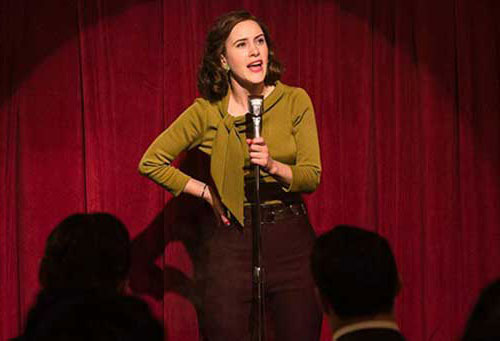
For a long time, it was believed that women were not able to do many things: it’s probably easier to name what they were “entrusted” to do than vice versa. However, the 20th century became a kind of turning point in gender equality because it was then that the voice of feminist movements was heard. Women finally got their way and began to secure places for themselves in areas where only men had previously flourished. Interestingly, women’s inability to joke used to be biologically justified, and it was believed that the sense of humor innate only in men. While stand-up was considered the last bastion of muscularity in the entertainment industry, women gradually succeeded in this area as well.
After centuries of the idea that women do not have a sense of humor and they are unable to joke as funny and witty as men do, prejudices began to gradually dissipate. Gender, social, and racial inequality became one of the leitmotifs of their speeches. Let’s see how the path of female comedians and stand-up performers was formed and how things are today.
Changes That Have Happened Over a Century
Loretta Aiken was the first woman to achieve success in the comedy arena. She became famous in 1920 as a member of a vaudeville troupe. While her colleagues were singing and dancing, she decided to perform monologues in between their performances. Over time, Loretta took the stage name Moms Mabley and became quite popular on television in the 1960s.
Some women gained fame as comedians, not performing on stage but working with a pen. For example, Dorothy Parker, Betty MacDonald, and Edna St. Vincent Millay wrote materials for newspapers and drew humorous sketches. Female jokes gradually began to appear in films: talented American actress Mae West made the grade thanks to her punchlines and open conversations about intimacy.
Since the middle of the 20th century, more women have been performing in stand-up, but still, male comedians far outnumbered female ones. They tried to look as neutral as possible to draw attention not to their appearance but their jokes. Phyllis Diller, for example, created a deliberately ridiculous stage image for herself that only contributed to the audience’s disposition towards her.
Gradually, more jokes about appearance and politics began to appear in humor. They became more honest, open, and aggressive in some way. This played into the hands of women as well, as the audience began to feel a great emotional closeness with stand-up performers, regardless of their gender.

The 1980s can be called a new stage in the development of the female stand-up – that’s when the ranks of women comedians were replenished with the new names of Joan Rivers, Rosanna Barr, Ellen DeGeneres, and others. They joked on various topics, from ageism and insecurities about appearance to family problems.
Nowadays, female comedians very often conduct not only stand-up activities but also become very successful actresses, presenters, and public figures. Thus, Ellen DeGeneres became widely known after her legendary monologue “God who? Godzilla!” in 1986. In the 90s, DeGeneres had already gained worldwide fame by making a public and unprecedented coming out on the Oprah Winfrey Show. For a long time, DeGeneres has been focused on her own daytime talk show; however, she still occasionally performs with large stand-ups.
People interested in the world of comedy could not help but hear about the actress and comedian Amy Schumer, who began her career in comedy reality competitions and became a star with her own comedy sketch series “Inside Amy Schumer.” Amy has never wanted to be perfect and always makes fun of people’s stereotypes.
The modern stand-up comedian scene cannot be imagined without Wanda Sykes, Lisa Lampanelli, Natasha Leggero, Margaret Cho, Tig Notaro, Sarah Silverman, Ali Wong, Leslie Jones… The female stand-up can no longer be called binary and one-sided. It features representatives of the LGBTQ community, comedians of different nationalities and ages, and they joke on almost all topics, even the most pressing ones. Such a variety can not but rejoice, as well as the fact that the audience can enjoy the performances of many talented women.





